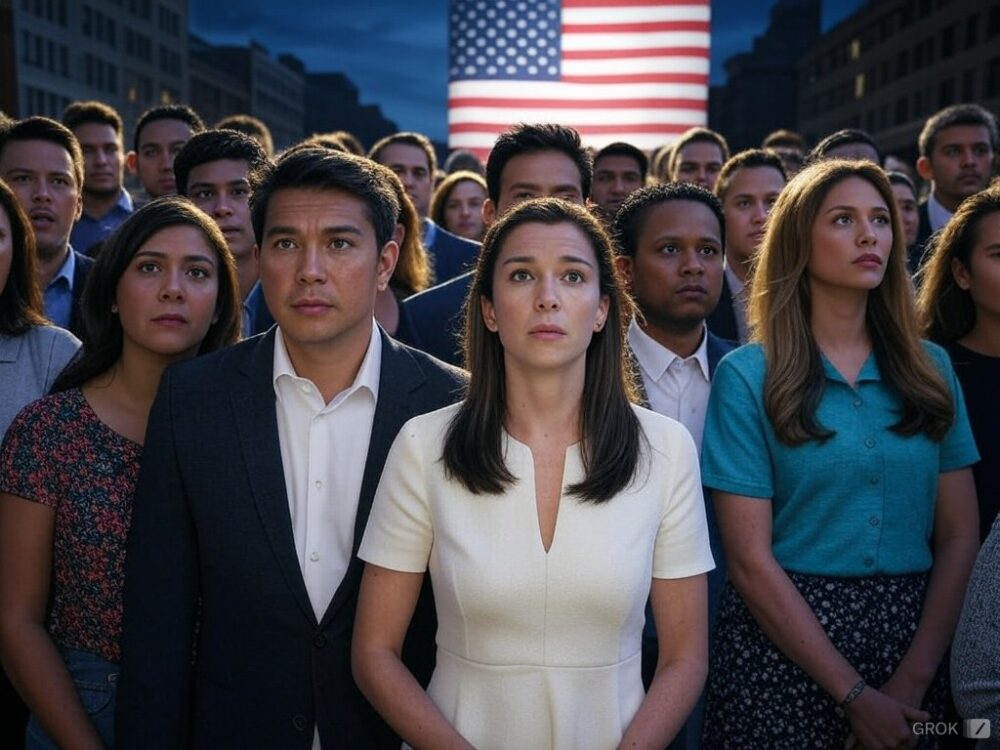
By Michael J. Tyler
The recent assassination of UnitedHealthcare’s CEO, Brian Thompson, by Luigi Mangione has not only captured headlines but has also sparked a revealing mosaic of public sentiment across America. This event, rather than being an isolated act of violence, has become a mirror reflecting the deep-seated frustrations and the complex social fabric of contemporary America.
A Spectrum of Reactions
The immediate response to Mangione’s act was a polarised one. On one hand, there was the expected condemnation from law enforcement and political figures, emphasising the sanctity of human life and the rule of law. Pennsylvania Governor Josh Shapiro, for instance, was quick to denounce the act, stating, “In America, we do not kill people in cold blood to resolve policy differences or express a viewpoint.” This reflects a traditional, law-abiding perspective that sees such acts as criminal, irrespective of the motives behind them.
Conversely, the reaction in certain online communities was startlingly different. Social media platforms were flooded with posts that either celebrated or at least sympathised with Mangione’s actions. The use of the “laugh” emoji on UnitedHealth Group’s official post about Thompson’s death, with over 35,000 reactions, indicates a level of public disdain for the health insurance industry. This response suggests not only anger but a collective catharsis, an outpouring of frustration against a system perceived as profit-driven and indifferent to human suffering.

The Underlying Issues
The public’s reaction underscores several critical societal issues:
- Healthcare System Critique: The American healthcare system, often criticised for its inefficiencies and profit-oriented approach, has evidently reached a boiling point in public patience. Mangione’s actions, while extreme, have been interpreted by some as a form of vigilante justice against what they see as systemic abuses. The words “delay,” “deny,” and “depose” written on bullet casings found at the scene are seen as symbolic of the tactics used by insurance companies, resonating with many who have experienced claim denials or bureaucratic red tape.
- Class Warfare and Wealth Disparity: Mangione’s background, coming from wealth and privilege yet turning against corporate America, taps into the narrative of class warfare. His act can be viewed through the lens of “social banditry,” where individuals become folk heroes for challenging perceived injustices by the rich and powerful against the less fortunate.
- Crisis of Trust in Institutions: The support or at least the lack of outright condemnation for Mangione’s actions points to a broader crisis of trust in American institutions. When public officials and systems fail to address or even acknowledge widespread grievances, the public’s faith in these structures erodes, leading to extreme expressions of discontent.
Cultural Reflections
This incident also reflects a cultural shift or at least a significant strain within American culture:
- Celebration of Anti-Heroes: The glorification of Mangione in some quarters mirrors a cultural fascination with anti-heroes, characters who, despite their morally ambiguous actions, are celebrated for defying conventional norms or systems. This trend in popular culture, from movies to literature, might explain why some see Mangione not as a murderer but as a symbol of resistance against a corrupt system.
- Desensitisation to Violence: The casualness with which some have reacted to this murder—through humor, merchandise, or outright support—might indicate a broader desensitisation to violence when it’s framed as a critique of an unpopular institution. This is alarming as it suggests a normalisation of extreme actions as legitimate forms of protest or expression.
Conclusion
The reaction to Luigi Mangione’s actions is not just about one man’s crime; it’s a commentary on American society’s state of mind. It reveals a populace torn between upholding law and order and seeking justice through any means when traditional avenues fail. This incident should serve as a wake-up call for policymakers, industry leaders, and society at large to address the underlying issues of healthcare, inequality, and public trust before more such symbolic, yet tragic, acts occur.
It’s clear that if the fundamental grievances are not addressed, the fabric of society might continue to fray, with unpredictable and potentially more violent expressions of public discontent.